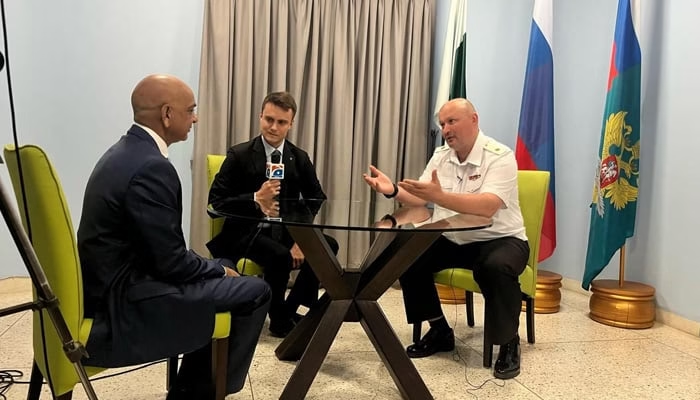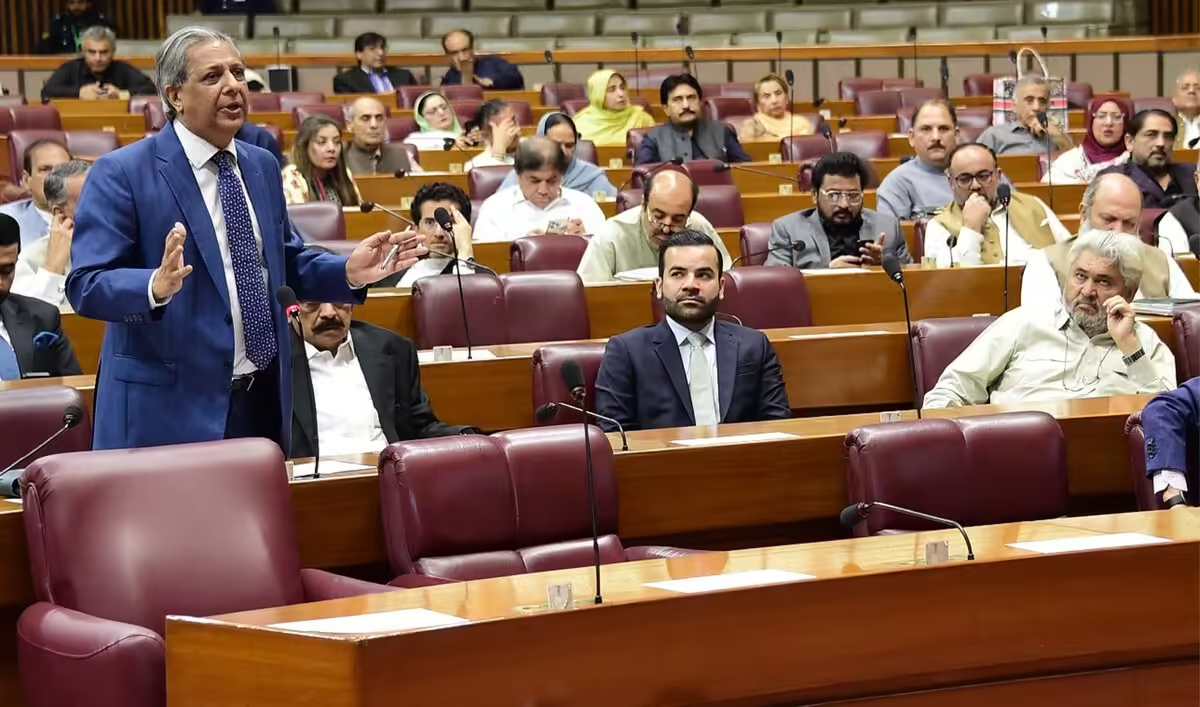Russian Navy Commander Rear Admiral Alexei Sysev has emphasized the significance of peace exercises, stating that they provide an essential platform for dialogue and cooperation between countries. Speaking to a Geo News correspondent, he highlighted that these exercises enable bilateral and trilateral meetings that foster diplomatic relations and help resolve critical maritime security issues.
Rear Admiral Sysev noted that Russia is closely monitoring the peace exercises hosted by Pakistan, observing that the number of participating countries and delegates is steadily increasing. He remarked that this reflects a shifting global attitude toward maritime security, making peace exercises a crucial topic for many nations.
“These exercises help nations recognize that we all face similar maritime security challenges. The problems are universal, and solving them through dialogue is the best approach,” Sysev said.
Russia’s Role in AI and Military Technology Cooperation
When asked about the potential role of artificial intelligence (AI) in military applications and whether Russia could assist Pakistan in this area, Rear Admiral Sysev responded affirmatively. He pointed out that AI-driven technologies are not limited to Russia or Ukraine but are available globally. Learning from a country that has firsthand experience dealing with modern warfare threats would be highly valuable for Pakistan, and Russia remains open to sharing its knowledge and expertise.
He also mentioned that Pakistan’s military leadership is planning an official visit to Russia soon, where key discussions regarding defense technology collaboration will take place.
Russia’s Proposal for Global Maritime Security Cooperation
During the peace exercises, Rear Admiral Sysev presented a proposal to establish an international system for addressing maritime security threats. He explained that the proposal is designed to bring together countries willing to engage in cooperative action against global and regional security challenges.
In the first phase, we will identify countries prepared to take practical steps toward this goal. The second phase will focus on forming a unified information-sharing system to monitor security threats. Finally, a permanent working group will be established to analyze this information and propose crisis management solutions, Sysev elaborated.
He emphasized that the ultimate aim is to create an international task force capable of deploying forces in response to maritime crises. This initiative would align with international legal frameworks and be guided by mutual trust and cooperation.
Comparisons with the U.S. Indo-Pacific Strategy
When asked whether Russia’s proposal was designed to counter the U.S. Indo-Pacific strategy, Rear Admiral Sysev dismissed such notions. He stated that Russia formulated its peace exercise proposals independently and without consideration of U.S. policies. However, he acknowledged that several nations, including Pakistan, China, Iran, Indonesia, and Malaysia, have raised concerns about the U.S. approach in the region.
“Competition is beneficial for all parties, but we operate with transparency, fairness, and high moral values. Our approach is not about countering others but about creating a stable and cooperative maritime security environment,” he asserted.
Russia Expresses Gratitude to Pakistan
Rear Admiral Sysev expressed appreciation to Pakistan’s leadership for inviting Russia to participate in the multinational peacekeeping exercises. He emphasized that maritime security plays a critical role in economic stability and development, making international cooperation in this domain essential.
“Maritime routes are the backbone of global trade and economic growth. Ensuring their security is a shared responsibility, and Pakistan’s efforts to establish a comprehensive security framework are commendable,” he said.
A Call for a Unified Maritime Security System
The Russian Rear Admiral proposed creating a globally coordinated maritime security system to address evolving geopolitical threats and technological advancements. He stressed that the rise of new terrorism tactics and cyber warfare necessitates collaborative action among nations.
The most effective way to tackle modern security challenges is through collective action. This requires respecting each other’s sovereignty while working toward shared security goals, Sysev noted.
He proposed that an international working group be formed to monitor security threats and recommend proactive measures. This group would:
- Establish a unified information-sharing network
- Create a task force to analyze maritime threats
- Develop crisis response mechanisms
- Deploy forces in unstable maritime regions in compliance with international law
Transforming the Indian Ocean into a Zone of Cooperation
Concluding his address, Rear Admiral Sysev reiterated that the Indian Ocean has the potential to become a region of peace and cooperation rather than conflict. However, he cautioned that achieving this goal requires a long-term strategy rather than isolated measures.
We have a historic opportunity to transform the Indian Ocean from a high-risk region into a center of cooperation. However, occasional peace exercises are not enough—we need a structured security framework that earns the trust of all stakeholders, he emphasized.
His closing remarks were met with applause from delegates, signaling broad support for Russia’s proposals. With increasing participation in Pakistan’s peace exercises and growing international interest in maritime security collaboration, Russia’s call for a global security framework may pave the way for stronger diplomatic and defense partnerships in the future.



